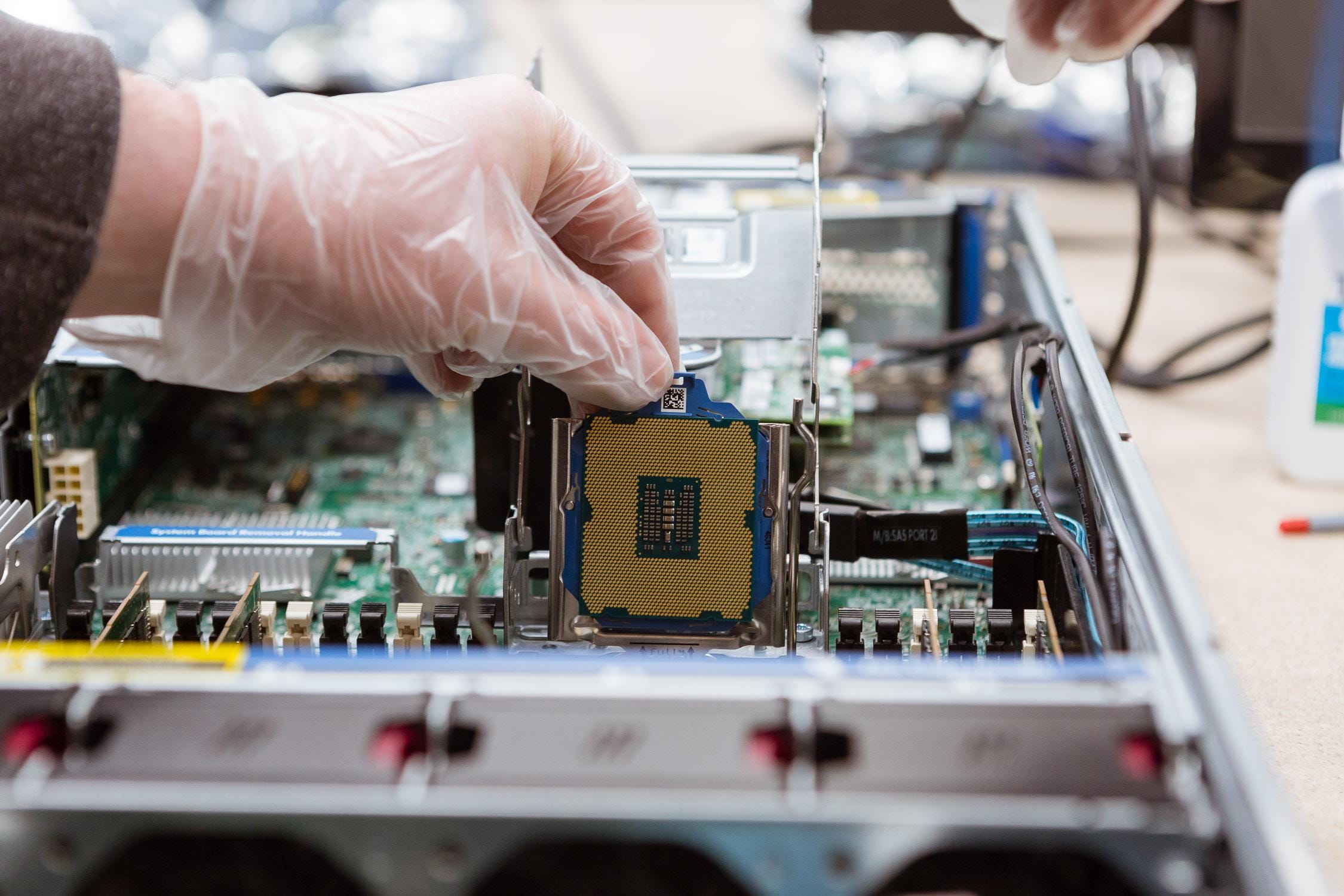In today’s tech-driven world, businesses are increasingly concerned about their environmental impact. The growing reliance on IT infrastructure, especially Servers, has raised questions about the sustainability of hardware production and the disposal of old technology. Enter the circular economy—a model focused on maximizing the value of products and minimizing waste by recycling, refurbishing, and reusing resources.
Refurbished servers play a pivotal role in this circular economy. By extending the lifecycle of technology, refurbished servers contribute to a more sustainable IT ecosystem while offering businesses cost-effective solutions. In this blog, we’ll dive into how refurbished servers align with the principles of the circular economy and why your business should consider adopting them.
1. What is the Circular Economy?
The circular economy is an alternative to the traditional linear economy, which follows a “take, make, dispose” model. In a linear economy, products are made from raw materials, used, and then discarded as waste. This results in waste accumulation and resource depletion.
In contrast, the circular economy emphasizes reducing waste, reusing resources, and recycling products to keep them in use for as long as possible. This approach encourages businesses to design products for longevity, repairability, and reuse. It’s a model that benefits both businesses and the planet by promoting sustainability and resource efficiency.
2. Refurbished Servers: A Key Component of the Circular Economy
Refurbished servers are a perfect example of the circular economy in action. Rather than disposing of old servers, businesses can restore and refurbish them to like-new condition, extending their lifespan and reducing e-waste. The process of refurbishing involves carefully inspecting, testing, repairing, and upgrading the hardware, ensuring it meets high performance and reliability standards.
Here’s how refurbished servers align with the circular economy:
Recycling valuable materials: Refurbishing servers reduces the need for mining new resources by making use of existing materials, such as metals, plastics, and circuit boards.
Extending product lifecycle: Instead of sending servers to a landfill, they are reused, reducing the demand for manufacturing new equipment and helping to conserve resources.
Minimizing waste: Refurbishing reduces e-waste, a growing environmental issue that arises from discarded electronics and IT equipment.
3. Environmental Benefits of Refurbished Servers
The environmental impact of traditional IT hardware production is substantial. Mining for rare materials, manufacturing, and shipping new servers all contribute to carbon emissions and resource depletion. However, when businesses choose refurbished servers, they play an important role in reducing their carbon footprint.
Key Environmental Benefits:
Lower carbon footprint: Refurbished servers require far less energy to produce compared to new ones, making them a greener option.
Reduced e-waste: With billions of tons of e-waste being produced annually, refurbishing old servers helps prevent them from ending up in landfills.
Conservation of resources: By reusing existing servers and parts, businesses reduce the demand for raw materials, minimizing the environmental impact of mining and manufacturing.
4. Economic Advantages for Businesses
While the environmental impact is important, refurbished servers also offer significant economic advantages for businesses. Small and medium-sized businesses (SMBs) in particular benefit from cost savings and the ability to scale efficiently.
Cost savings: Refurbished servers can cost anywhere from 40-70% less than new hardware. These savings allow businesses to invest in other areas such as marketing, hiring, or research and development.
High-quality performance at lower cost: Refurbished servers are thoroughly tested and upgraded to ensure they provide reliable, enterprise-level performance at a fraction of the cost of new systems.
Scalability: Refurbished servers are available in a wide range of configurations, making it easy to scale your infrastructure as your business grows, without the high upfront cost of brand-new systems.
5. Supporting Corporate Social Responsibility (CSR) Goals
As consumers and investors place more emphasis on sustainability, businesses are increasingly aligning their operations with corporate social responsibility (CSR) initiatives. Opting for refurbished IT equipment, including servers, helps businesses achieve their sustainability targets and enhance their green credentials.
By choosing refurbished servers, companies can:
Demonstrate eco-consciousness: Using refurbished hardware shows a commitment to reducing e-waste and promoting sustainable business practices.
Support sustainability goals: Many businesses are setting targets for carbon neutrality or reducing energy consumption. Refurbished servers contribute directly to these goals by lowering resource use and emissions.
Appeal to eco-conscious consumers: More consumers are choosing brands that align with their values. Businesses that promote green IT practices can attract environmentally-conscious customers.
6. Future-Proofing Your IT with Refurbished Servers
In an ever-evolving technological landscape, it’s important for businesses to stay ahead of the curve. Refurbished servers offer the ability to stay up-to-date with the latest hardware without the expense of buying new equipment each time. Many refurbished servers come with the latest processors, storage solutions, and networking capabilities, making them ideal for future-proofing your IT infrastructure.
Refurbished servers also depreciate more slowly than new hardware, providing better long-term value. As businesses continue to prioritize sustainability and cost-efficiency, refurbished servers are a smart choice for companies looking to optimize their infrastructure without continuously investing in new equipment.
Conclusion: Embracing the Circular Economy with Refurbished Servers
Refurbished servers play an integral role in building a sustainable IT ecosystem by reducing waste, conserving resources, and lowering carbon emissions. For businesses looking to align with the circular economy, choosing refurbished servers is a cost-effective and environmentally-friendly option that doesn’t compromise on performance or reliability.
By investing in refurbished technology, businesses not only benefit from immediate cost savings and long-term value but also contribute to a more sustainable future. As e-waste continues to rise and businesses become more eco-conscious, refurbished servers will be key to driving sustainability in the IT industry.
Ready to Embrace Sustainable IT Solutions?
Explore our wide range of certified refurbished servers and help your business join the circular economy while saving money and enhancing your IT performance.


